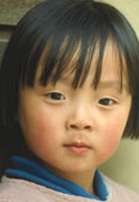|
|
As the largest ethnic group in the world—numbering 1.3 billion—the Han Chinese reside in nearly every country in the world. The Diaspora Han Chinese in Cuba are included in this number. After the Mongol Invasion around 1276, many Han Chinese fled to other areas of the world, taking up residence often near larger urban centers which allowed them to work in business and various trades. Many of the Diaspora Han Chinese have maintained portions of their culture and language. They have also continued living by their traditional Chinese customs, especially those involving marriage and family. One reason they continue to hold to these customs is a deep belief in the superiority of their culture.
Family is very important for the Diaspora Han Chinese. Children are indulged (boys even more so than girls), but are also pushed to excel in school and to invest much time in their studies. The Han Chinese are polite people; however, if drawn into a dispute, they will seek to win the debate due to a high value placed on “saving face” and reputation.
In general, the Diaspora Han Chinese have maintained their traditional Chinese religion, which is marked by elements of Buddhist, Confucianism and Taoism. They are also very superstitious, relying on horoscopes in an attempt to promote harmony and bring good luck. Their belief in the spirit world is strong; however, this belief seems to have little impact on their day-to-day lives.
The Diaspora Han Chinese are often mistreated in the lands where they now live. This is often due to jealously over the successful business ventures they have begun.
Tens of thousands of Han Chinese live in Cuba. They need to hear the gospel and respond appropriately. Pray that in their new land, God would draw them to himself and use them to impact the culture around them.
For more information on the Han Chinese of Cuba, visit:
http://en.wikipedia.org/wiki/Han_Chinese
http://www.mnsu.edu/emuseum/cultural/oldworld/asia/hanchinese.html
http://kcm.co.kr/bethany_eng/p_code2/1020.html
(Information compiled from www.joshuaproject.net)
(Note: The website links above are intended to provide you with more information about this people group. Some of the links are to groups that are not religious in nature but who provide information and background that may be helpful in researching this people group. The content of each of the websites linked to is the sole responsibility of the linked-to organization. Views expressed on these websites do not necessarily reflect the opinions and beliefs of the staff or writers of Lausanne World Pulse or those of the Lausanne Committee for World Evangelization, Institute of Strategic Evangelism, Evangelism and Missions Information Service or Intercultural Studies Department.)


